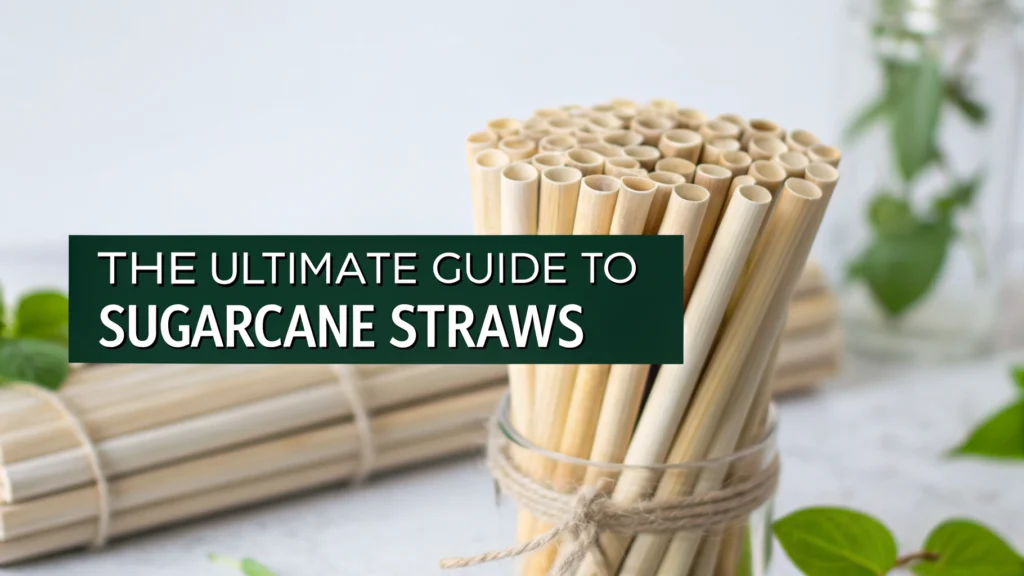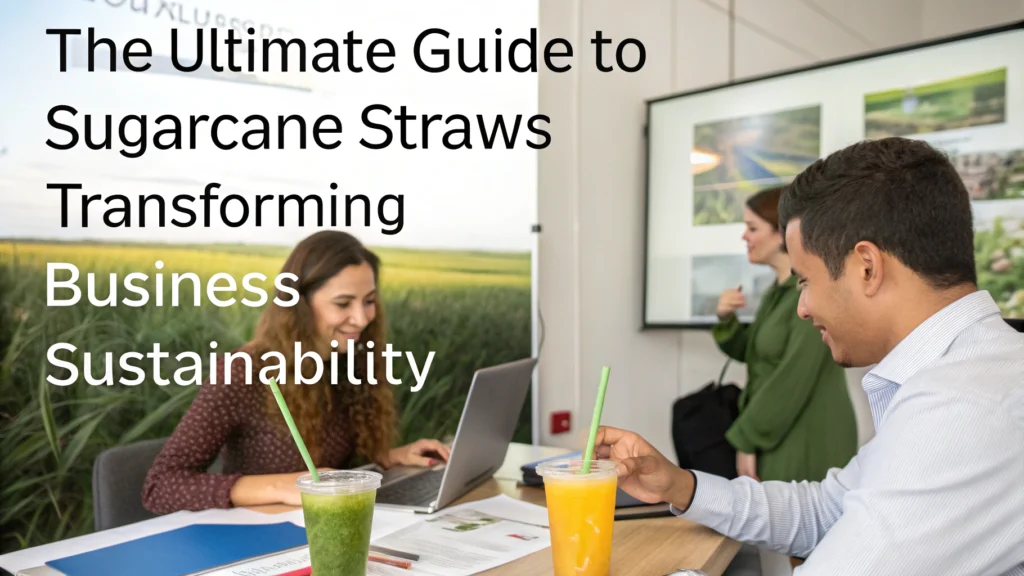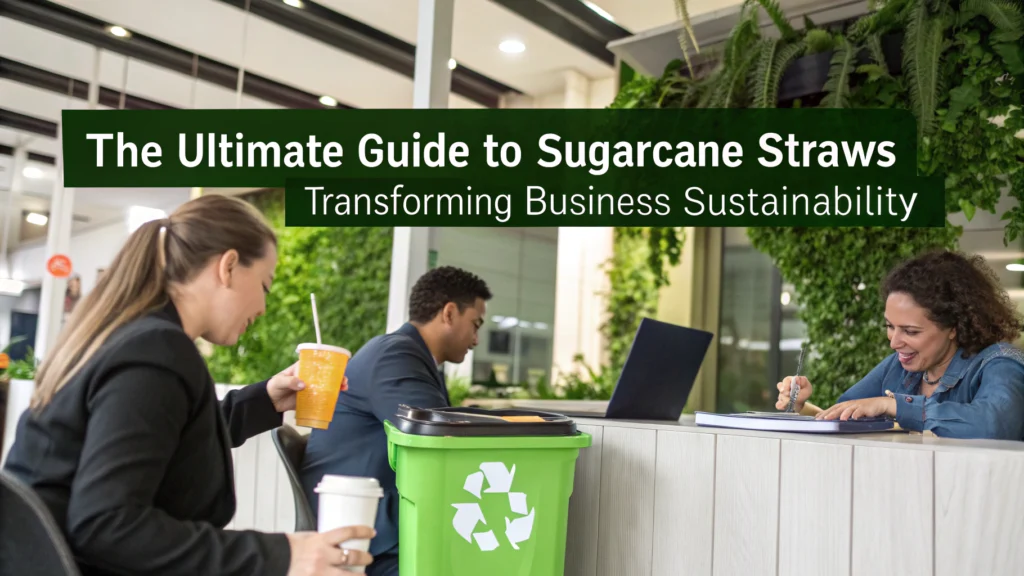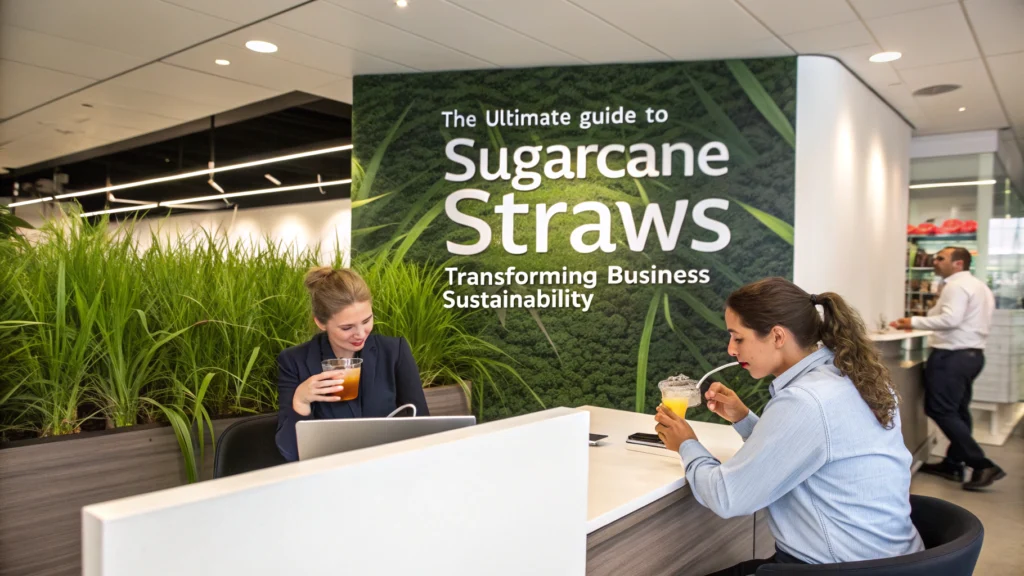
In today’s climate-conscious marketplace, the shift toward sustainable alternatives isn’t just trendy—it’s imperative. Sugarcane straws have revolutionized the food service industry, offering an elegant solution to the plastic crisis while meeting rigorous performance standards. Here’s your executive guide to making the switch and embracing sustainability in 2025.
The Environmental Edge: Beyond Basic Benefits

The numbers tell a compelling story. According to the Environmental Research Institute’s groundbreaking 2025 study, sugarcane straws deliver:
- 90% Lower Carbon Footprint: Each ton of sugarcane absorbs 2.5 tons of CO2 during growth.
- Zero Microplastic Legacy: Complete biodegradation within 90 days, verified through soil composition analysis.
- Water Conservation: Requires 60% less water to produce than paper alternatives.
Business Impact: The Bottom Line

Recent market analysis from McKinsey reveals striking statistics:
- 82% of Gen-Z consumers: Actively seek eco-friendly establishments.
- 43% higher customer retention: Observed in businesses implementing sustainable practices.
- ROI Achievement: Average break-even point of 4.6 months, factoring in premium pricing acceptance.
Real-World Success Story
স্বতন্ত্রভাবে মোড়ানো বোবা কফি গ্রাউন্ডস স্ট্র 12 মিমি 210 মিমি
The Hilton Marina Group reported a 27% increase in positive reviews after switching to sugarcane straws, with guests specifically mentioning sustainable practices in their feedback.
Quality Markers: What Sets Excellence Apart
Premium Product Indicators
Look for these non-negotiable certifications:
- FDA Food Contact Safety
- EN13432 Biodegradability
- ISO 14851 Testing Verification
Performance Metrics
Laboratory testing confirms:
- Heat Resistance: Maintains integrity up to 92°C.
- Durability: 5-hour structural stability in frozen beverages.
- Neutral Impact: Zero flavor transfer, verified by sensory panels.
Strategic Implementation
Phase-Based Rollout
- Pilot Program (2-4 weeks)
- Staff training.
- Customer feedback collection.
- Supply chain optimization.
- Full Implementation (1-2 months)
- Marketing campaign launch.
- Inventory management system integration.
- Impact measurement protocols.
Supplier Excellence Framework
Critical Selection Criteria
- Minimum production capacity: 1M units monthly.
- ISO 9001:2015 certification.
- Transparent supply chain documentation.
- Regular third-party quality audits.
Industry-Specific Solutions
Quick-Service Restaurants
- Custom length options (8″, 10″).
- Bulk packaging configurations.
- Rush delivery programs.
Premium Hospitality
- Individually wrapped options.
- Custom branding capabilities.
- Premium finish selections.
Future-Proofing Your Investment
Innovation Pipeline
Leading manufacturers are developing:
- Enhanced heat resistance properties.
- Custom color options.
- Advanced preservation techniques.
Take Action

Transform your business’s environmental impact while enhancing customer experience. Our dedicated team provides:
- Customized implementation strategies.
- Staff training materials.
- Marketing support assets.
Connect With Experts
- Email: max@naturebioeco.com
- WhatsApp: +86 13524105790
Data sources include Environmental Research Quarterly 2024, McKinsey Sustainability Report 2024, and verified case studies from global implementation partners.
FAQ
What are sugarcane straws made of?
Sugarcane straws are made from bagasse, a natural byproduct of sugarcane processing, making them 100% biodegradable and eco-friendly.
How long does it take for sugarcane straws to decompose?
Sugarcane straws fully decompose within 90 days under composting conditions, leaving no microplastic residue.
Can sugarcane straws be used for hot and cold beverages?
Yes, sugarcane straws are heat resistant up to 92°C and maintain their structural integrity in frozen beverages for up to 5 hours.
What certifications should I look for in sugarcane straws?
Ensure they have FDA Food Contact Safety, EN13432 Biodegradability, and ISO 14851 Testing Verification certifications for quality assurance.







